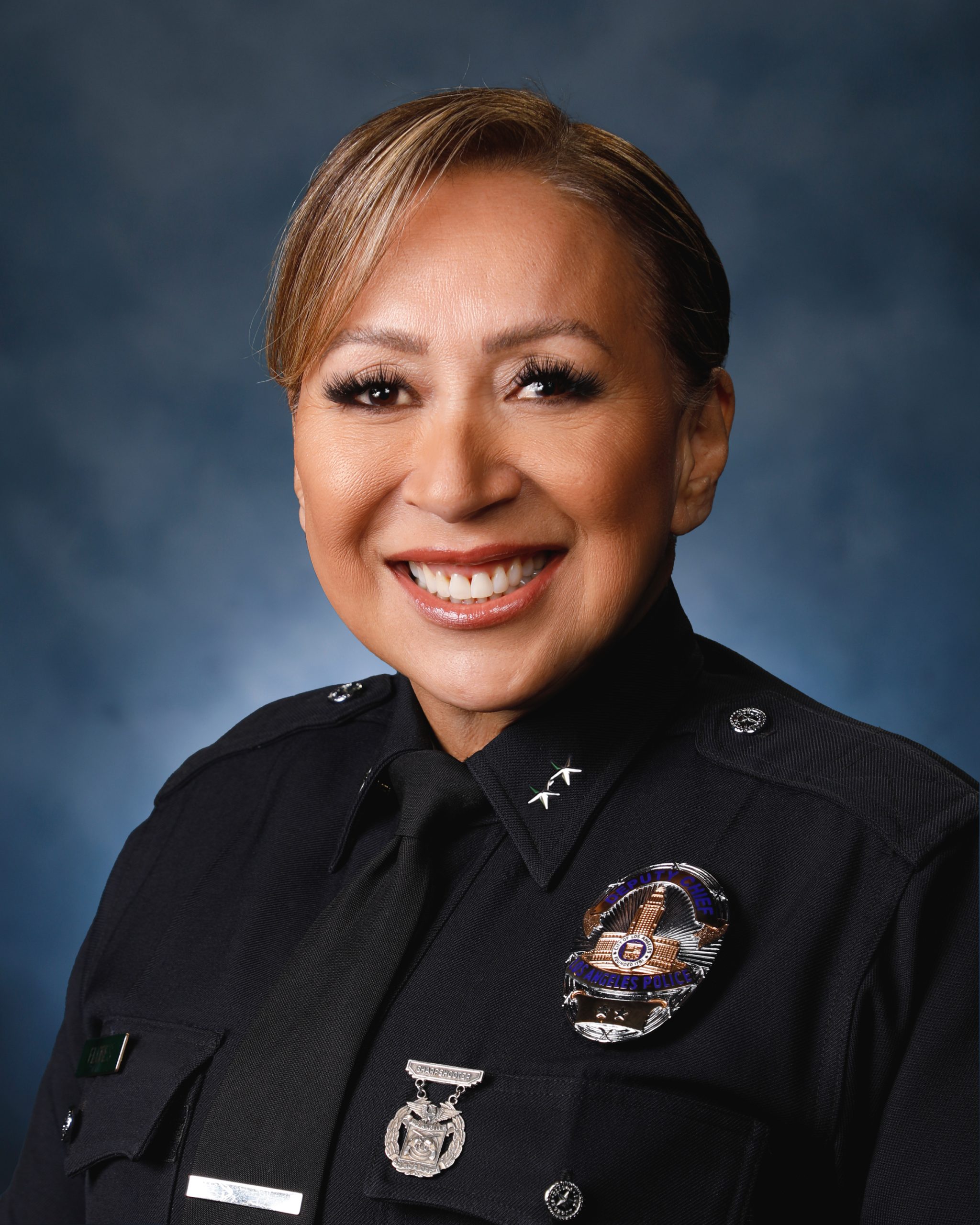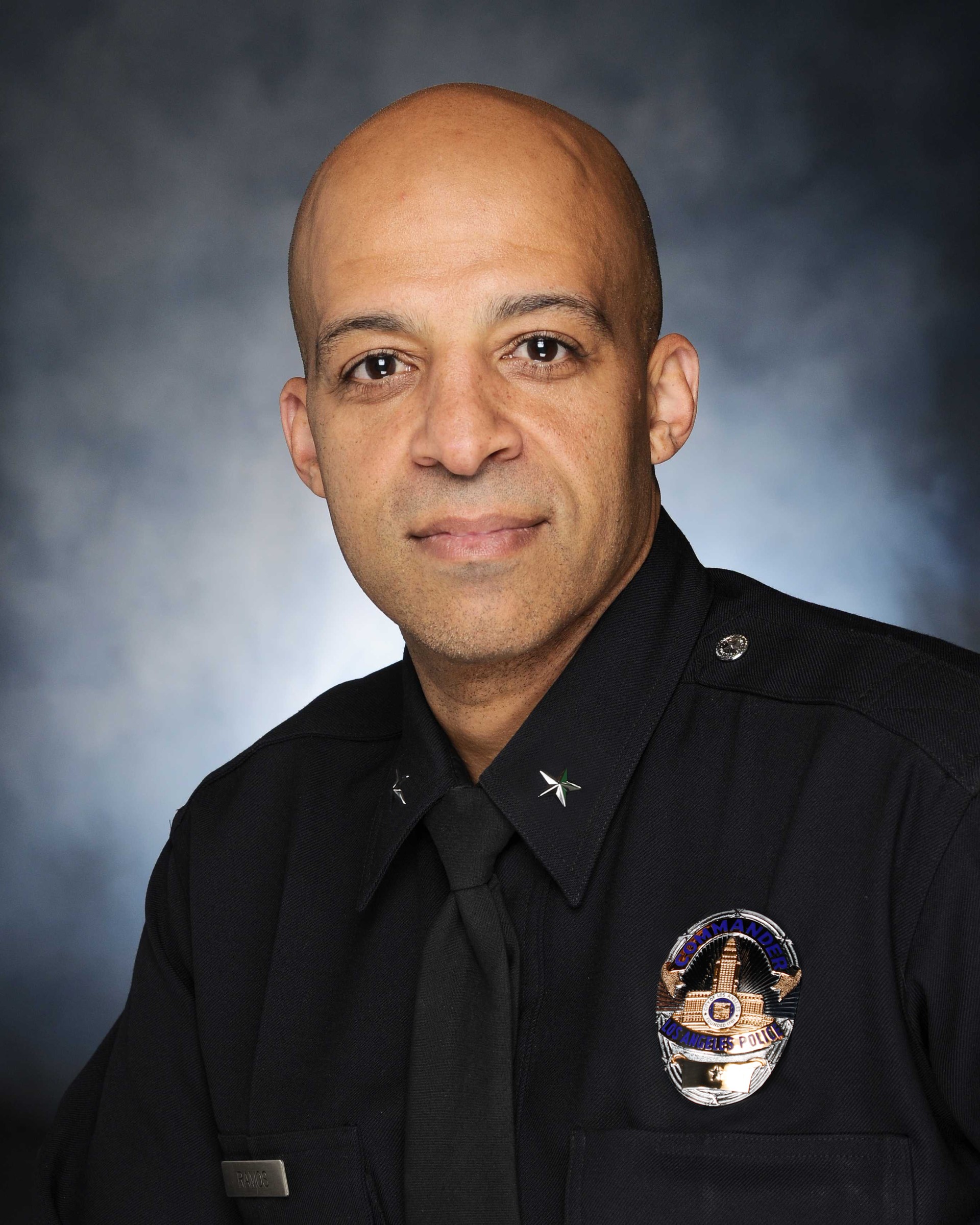Diversity, Equity, & Inclusion Division
Meet Your LAPD Station Captains
Meet Your Commanding Officer
Under the Jurisdiction of:
About
OVERVIEW
As diverse communities and neighborhoods comprise the City of Los Angeles, it is imperative that the City’s workforce be reflective of the communities it serves. In conjunction with Mayor Garcetti’s Executive Directive No. 27, the Department established the position of a DEI Officer (DEIO) to promote equity in policies and practices throughout the organization. The Department’s DEI Plan and DEIO embraces all forms of diversity and will continue to advocate equity in hiring and promotions to create a more inclusive workforce.
Fundamentally, we must understand the basic definitions of DEI.
Diversity is the presence of differences. Some of these differences may include race, ethnicity, gender, gender identity, gender expression, medical condition, sexual orientation, age, social class, physical ability, attributes, religious, ethical values system, national origin, beliefs, perspective, profession, education, or experience.
Diversity makes the City of Los Angeles great. The great diversity in the City and the Department brings with it new ideas and experiences. Diversity means that people can learn from each other, bringing together different ideas and perspectives that leads to better problem-solving. Diversity opens dialogue and promotes creativity. The Department must continue to embrace and expand its diversity.
Equity is the quality of being fair and impartial and ensures that individuals can access necessities and opportunities in a manner that is fair and proportional. Equity seeks to provide resources where needed.
Equity differs from equality which assumes that everyone’s conditions are the same and so everyone needs the same assets to compete fairly. The Department’s goal for equity is to constantly search for ways to improve access and opportunities both within the Department (e.g., training, experience, loans, and exposure) and outside the Department (e.g., recruitment, programs, advisory boards, community councils, community academies, and service projects).
Inclusion is the act or process of finding individuals who have been previously excluded or marginalized and removing those barriers. When systems are determined to be unfair or unjust, inclusion can revitalize those systems and make them relevant again.
The Department must constantly evaluate its policies, procedures, practices, and culture to determine if they unnecessarily hinder inclusion. We must increase resources and efforts that prepare individuals to compete in the Department’s existing systems and when necessary, change those systems to dismantle artificial barriers that limit inclusivity. We must also seek to include and give a voice to the community. As the Department is a public service organization, it is their Department too.
Goals
MISSION
The Department’s goal is to build and foster an organization committed to engaging the voices and respecting the humanity of all people. We recognize that equality, diversity, and human rights are an integral part of Departmental partnerships. The Department’s commitment to DEI needs to be visible and must reflect the expectations of our communities. Every individual involved or connected with the LAPD must ensure they embody the intent of this mission through their words and actions.
THE DUAL PILLARS OF DEI
1. Introspective Examination
A 21st Century police department can only serve the public effectively by doing the difficult work of self-evaluation and improvement. To be successful, we must ensure that DEI is prioritized in all aspects of the Department such as affinity group concerns, professional development and promotional opportunities and inclusion, recognition of and training about our history, data analysis, and assessment of work environment.
2. Community Engagement, Partnership and Collaboration
The Department has a rich history in community partnership and collaboration and has made great strides in these areas – but we can and will do more. Our Core Value, “Quality through Continuous Improvement,” acknowledges that there are always opportunities for progress and advancement. Community engagement will remain a priority for the Department. Because law enforcement cannot resolve public safety challenges alone, community collaboration and partnerships are necessary. The DEIO will encourage interactive and collaborative relationships with the community to foster these goals. The DEIO will help lead the Department’s continued commitment to community engagement from a position of cultural competence. Specifically, the DEIO will seek to improve trust through transparency via policy and procedure evaluation, communication, and data delivery.
MOVING FORWARD
Transparency is at the forefront of the Department’s efforts to work within and outside of the Department to build trust. The Department’s ability to provide exceptional police service is predicated on the approval, trust, and partnership of its diverse internal and external communities. Through this plan the DEIO will extend opportunities to all community stakeholders to have a “seat at the table” in re-imagining policing.
At our best, the Los Angeles Police Department is a beacon for the betterment of policing in Los Angeles and around the world. In an everchanging world, we must continue to improve. As the most visible and responsive element of government, it is no surprise that policing has been the flash point for societal frustration and demands for improvement. We embrace this and our current challenge is to make the most of reform momentum.
Success will be the realization that the Department is quick to recognize injustice and inequality. The route to this success is embracing DEI as our guideposts towards the next century of continued leadership.



